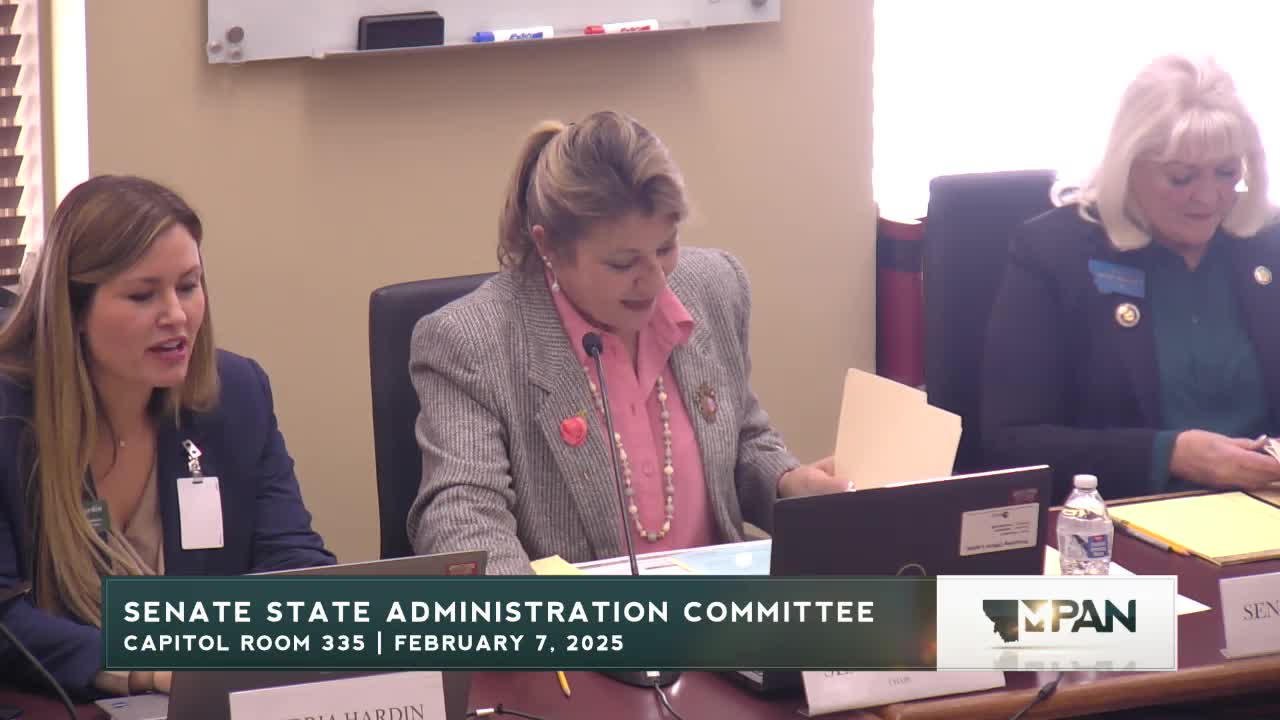Committee hears bill to update Montana code to match current federal military rules
Get AI-powered insights, summaries, and transcripts
Subscribe
Summary
Supporters told the State Administration Committee House Bill 66 updates a Montana statute to adopt federal military laws and the Uniform Code of Military Justice through 2025; witnesses described personnel due-process procedures and recent UCMJ changes that affect criminalization of harassment and hazing.
House Bill 66, a recurring housekeeping bill to keep Montana law aligned with current federal military rules, was presented to the Montana State Administration Committee on a motion to open the hearing.
Representative Pete Elverum, representing House District 82, presented the bill at the request of the Department of Military Affairs. He said the measure “seeks to make a couple updates ... to adjust the reference ... from 2023 to 2025” in the statute that incorporates federal military law into state law and urged a due pass.
The measure would amend Montana Code section 10-1-1104 to adopt the most recent federal military laws and regulations and to adopt the current Uniform Code of Military Justice (UCMJ) as applied within state law where consistent with the Montana Constitution and state statutes. Major General Jay (spelled in the record as "h r o n e k"), Adjutant General and director of the Department of Military Affairs, told the committee that the change is routine and required each session by longstanding Montana Supreme Court precedent dating to Lee v. Montana (1981). “House Bill 66 will amend ... section 10-1-1104 of the Montana code to allow the Montana National Guard to use the most current applicable federal military laws and regulations,” he said.
Lieutenant Colonel Todd Wayne, deputy staff judge advocate for the Montana National Guard, described the practical effect for service members. He explained that most military justice matters for the Guard in Montana are handled administratively (nonjudicial punishment and administrative separation) rather than by courts-martial in state practice, and that administrative separations include a board hearing and procedural safeguards. Wayne also summarized some recent federal UCMJ changes he said the Guard is adopting through the statute: harassment has been criminalized and maltreatment, hazing and bullying are now criminal offenses; federal procedural changes created an Office of Special Trial Counsel for certain felony-level cases. Wayne said those particular UCMJ changes have limited application to Montana's Guard because courts-martial are not conducted in Montana and the state typically applies nonjudicial measures.
Dennis Stoner, representing the Enlisted and Officers Association for Montana and appearing for the American Legion, registered support for the bill. Committee members asked technical questions about separation characterizations on the DD Form 214 and the effect of discharge characterization on benefits; Wayne explained the distinctions among honorable, general under honorable conditions, and other-than-honorable discharges and their potential effects on GI Bill and VA benefits.
Why it matters: the statute that House Bill 66 updates is the vehicle by which Montana adopts federal military rules in force as of a given date. Updating the statutory reference keeps state adoption in step with federal changes that affect discipline, administrative separation and military-specific criminal offenses. Proponents characterized the bill as a routine, necessary update; committee exchange focused on due-process protections in administrative separation and practical consequences for service members.
The committee concluded the hearing on House Bill 66 and did not record a floor vote during the session covered in the transcript.
